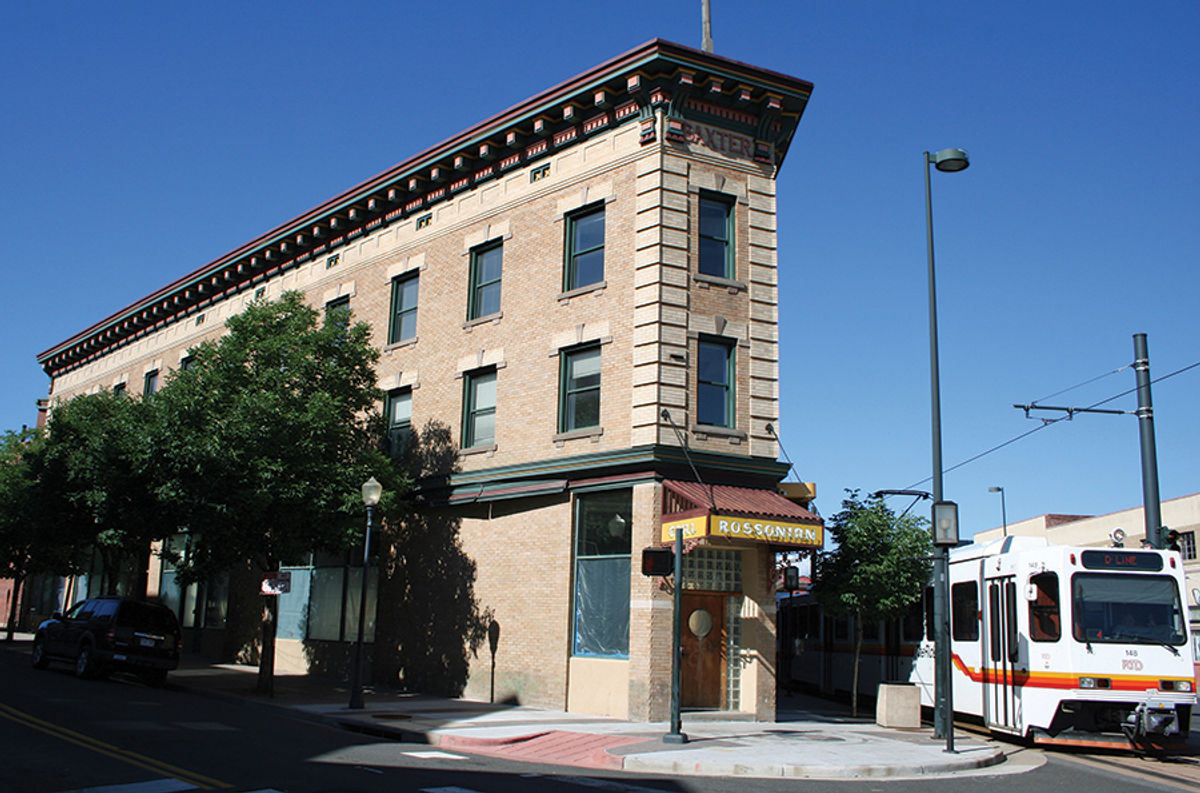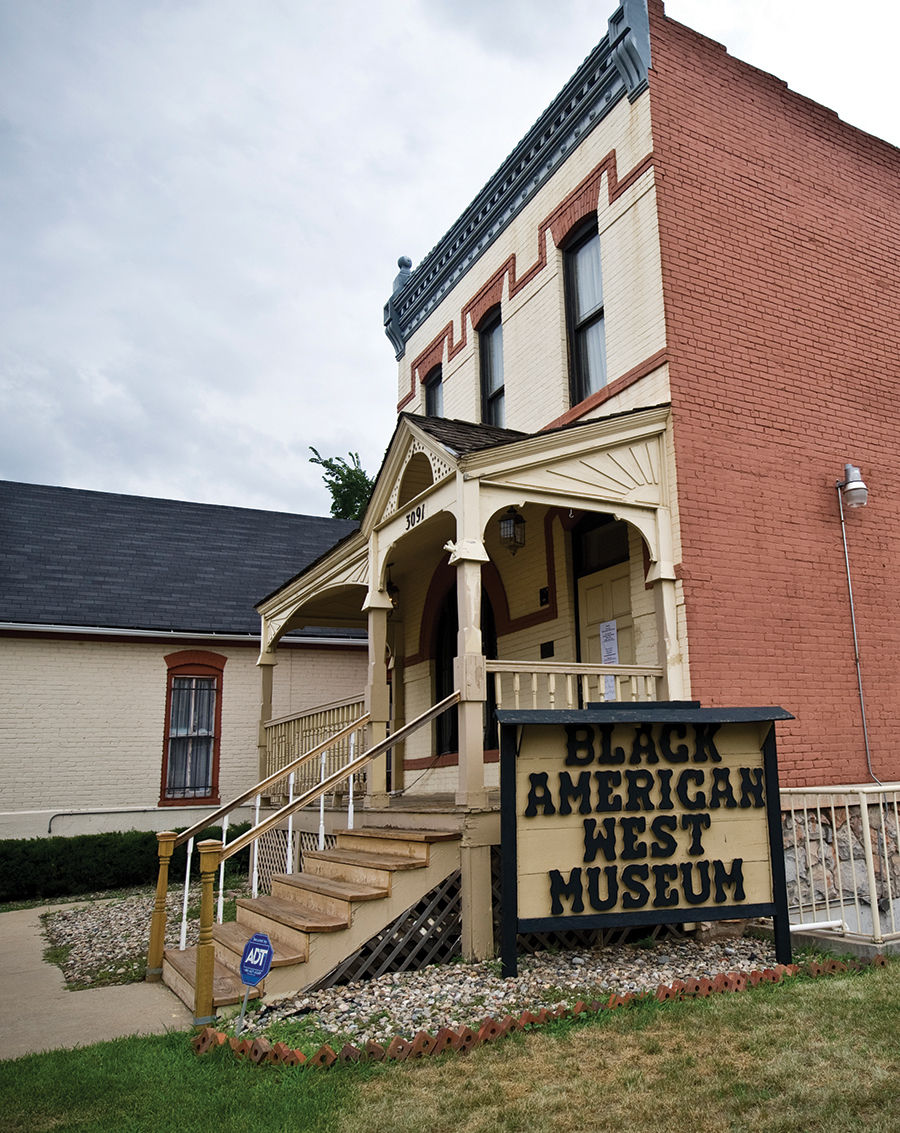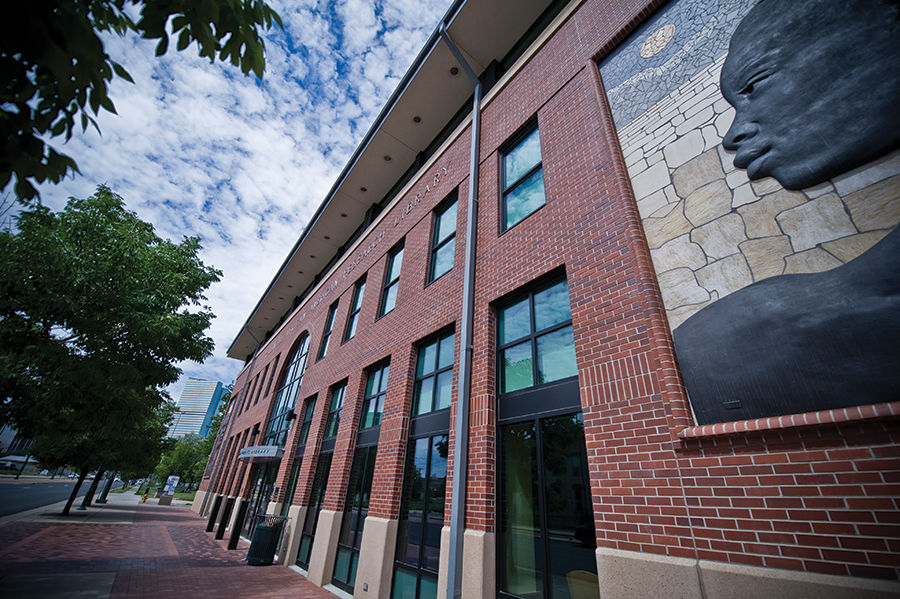
—by Tracy Jenkins Winchester, former Executive Director of the Five Points Business District, for the 2018 Field Guide
THE “HARLEM OF THE WEST”
Five Points is considered the “Harlem of the West” due to its long jazz history. It was the first predominantly African American neighborhood in Denver, and in the ’30s, ’40s and ’50s, was home to over fifty bars and clubs, where some of the greatest jazz musicians performed, such as Billie Holiday, Duke Ellington, Miles Davis and many others.
Two prominent places served as the hub. The Rossonian Hotel (above), constructed in 1912 as the Baxter Hotel, sat at the heart of Denver’s Five Points community. With the name change in 1929 and the establishment of the Rossonian Lounge, the hotel became one of the most important jazz clubs between St. Louis and Los Angeles. Jazz greats such as Duke Ellington, Louis Armstrong, Count Basie, Nat King Cole, George Shearing, and Dinah Washington stayed at the hotel and entertained in the Rossonian Lounge between their major Denver engagements. These shows were often staged after the musicians finished their scheduled performances at the same Denver hotels that refused them lodging due to the racial segregation existing at the time.
In addition to the Rossonian, Benny Hooper in the 1930s opened the Casino Dance Hall, eventually known as the Casino Cabaret, next door to the Ex-serviceman’s Club. The Casino evolved into a two-story hall with balcony seating for 1,000, a 40-foot-long bar, and a huge hardwood dance floor. At the time, it was the largest and most luxurious of all the Five Points jazz clubs. During the good years, the Casino swung to the music of Brook Benton, James Brown, Ray Charles, Fats Domino, George Morrison, Muddy Waters, and other musical legends.
A CULTURAL DESTINATION
 Today, Five Points is an emerging multi-cultural entertainment and business district rooted in African-American history and poised to become a destination for arts, culture and entertainment. Located along a light rail corridor on the northeast edge of downtown Denver, the district offers quick access to downtown and adjoining neighborhoods. Numerous re-development and transportation studies have been completed over the past two decades to revitalize this area to its culturally vibrant state.
Today, Five Points is an emerging multi-cultural entertainment and business district rooted in African-American history and poised to become a destination for arts, culture and entertainment. Located along a light rail corridor on the northeast edge of downtown Denver, the district offers quick access to downtown and adjoining neighborhoods. Numerous re-development and transportation studies have been completed over the past two decades to revitalize this area to its culturally vibrant state.
Five Points’ African-American heritage is carried forward by the Black American West Museum and Heritage Center, the Cleo Parker Robinson Dance Ensemble, as well as the Blair-Caldwell African American Research Library. Longstanding African American churches and businesses continue to anchor the neighborhood. Each year, the Juneteenth Festival draws more than 50,000 people to celebrate freedom, culture, and the powerful history of the community.
Denver Arts & Venues Five Points Jazz Fund invests $225,000 annually, in partnership with the Five Points Business Improvement District (BID) and the office of Councilman Darrell Watson, to support jazz and jazz-related programming throughout the neighborhood.
“These funds support jazz musicians, artists, and our Five Points businesses,” shared Five Points BID Executive Director Norman Harris. “We encourage local residents and all Denverites to participate in the neighborhood’s legacy as the ‘Harlem of the West.’”
Welton Street remains the neighborhood’s spine – the communal gathering place for San Rafael, Curtis Park, Cole, Whittier, and the broader Five Points community. And even as demographics shift, Five Points continues to stand as the historic center and cultural symbol for the metro area’s African American community.

Norman Harris is the Executive Director of the Five Points Business District (BID). Learn more about him and his vision for the historic neighborhood here.
(Photo credits: Five Points Business District)